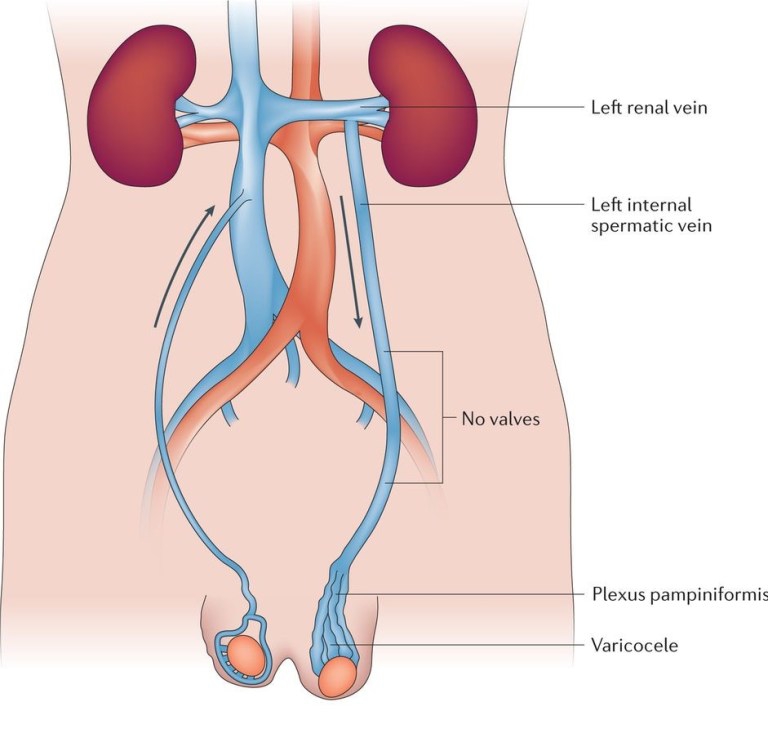Introduction to Varicocele Embolisation
Varicocele is a condition where veins within the scrotum become enlarged, leading to discomfort, pain, and in some cases, infertility. The veins responsible for this condition are known as the pampiniform plexus, and when they are enlarged, they can disrupt blood flow, potentially harming sperm production. For many men suffering from varicocele, treatment is necessary, especially if they face infertility challenges. One of the most effective and minimally invasive treatments for this condition is varicocele embolisation.
This article provides an in-depth look at varicocele embolisation, its benefits, the procedure, recovery expectations, and why it might be the best treatment option for those dealing with varicocele-related issues.
What is Varicocele Embolisation?
Varicocele embolisation is a minimally invasive procedure used to treat varicoceles. The procedure involves the use of a catheter, which is inserted into the vein through a small incision in the groin or neck area. The catheter is guided to the affected veins in the scrotum, where a coil or embolic agent is deployed to block the blood flow to the enlarged veins. This stops the varicocele from growing further and relieves the associated symptoms, including pain and discomfort.
Embolisation is an alternative to traditional surgery, offering several advantages, such as quicker recovery, fewer complications, and a shorter hospital stay.
Why Choose Varicocele Embolisation?
There are various reasons why varicocele embolisation may be the ideal choice for treating varicoceles. Some of the key benefits include:
-
Minimally Invasive: Unlike traditional surgery, varicocele embolisation involves only small incisions, reducing the risk of infection and scarring.
-
Quicker Recovery: Patients undergoing embolisation typically experience a faster recovery time. Most individuals can return to their daily activities within a few days, compared to weeks of recovery after surgery.
-
Fewer Complications: With embolisation, the risk of complications such as nerve injury or infection is lower. This makes it a safer option for many patients.
-
Effective Treatment for Infertility: Many men who undergo varicocele embolisation see improvements in sperm quality, motility, and overall fertility, making it an excellent treatment for men struggling with infertility.
-
Outpatient Procedure: Varicocele embolisation is often performed on an outpatient basis, meaning you won’t need to stay in the hospital overnight.
How is the Procedure Performed?
The procedure begins with a local anesthetic to numb the area where the catheter will be inserted. A small incision is made in the groin or neck, and a thin catheter is threaded through the blood vessels to the varicocele. Once the catheter reaches the affected veins, an embolic agent—such as coils or a liquid embolic substance—is injected to block the blood flow. The procedure typically takes between 30 minutes to an hour, depending on the complexity of the varicocele.
During the procedure, real-time imaging, such as fluoroscopy (X-ray guidance), is used to ensure the catheter is placed in the correct location. Once the veins are blocked, blood flow is redirected to healthier veins, and the varicocele begins to shrink.
Recovery and Aftercare
After undergoing varicocele embolisation, patients can usually go home the same day. However, some minor discomfort, such as mild swelling or bruising at the insertion site, is common. Most patients can return to normal activities within a few days, though it’s recommended to avoid strenuous physical activities or heavy lifting for a short period after the procedure.
It is important to follow the aftercare instructions provided by the healthcare provider to ensure optimal healing. Some patients may need a follow-up appointment to assess the results of the procedure and monitor recovery.
Risks and Potential Complications
While varicocele embolisation is a relatively safe procedure, as with any medical treatment, there are risks involved. These can include:
-
Infection: Though rare, there is a small risk of infection at the catheter insertion site.
-
Bleeding or Hematoma: In some cases, bleeding or the formation of a blood clot (hematoma) can occur, though this is typically mild.
-
Allergic Reaction to Contrast Dye: Some patients may experience an allergic reaction to the contrast dye used during the procedure, though this is uncommon.
-
Incomplete Treatment: In some cases, the embolisation may not fully block the blood flow to the varicocele, which could necessitate a repeat procedure.
-
Recurrence of Varicocele: In a small number of cases, varicocele embolisation may not provide permanent relief, and the varicocele may return over time.
Despite these risks, the benefits of varicocele embolisation often outweigh the potential drawbacks, especially considering its minimally invasive nature and quick recovery time.
Who is an Ideal Candidate for Varicocele Embolisation?
Varicocele embolisation is suitable for many men who suffer from varicocele-related symptoms, but it is not for everyone. Ideal candidates for this procedure include:
-
Men with Varicocele-Related Pain: If varicocele is causing discomfort or pain that affects daily life, embolisation can provide relief.
-
Infertility Issues: Men experiencing infertility due to varicocele can benefit significantly from this procedure, as it can improve sperm quality and motility.
-
Patients Who Prefer Minimally Invasive Treatment: Men who want to avoid traditional surgery and prefer a less invasive procedure may find varicocele embolisation appealing.
However, the procedure may not be suitable for men who have certain medical conditions that affect blood flow or those who are allergic to the materials used during the procedure. It is essential to discuss your medical history with your doctor to determine if embolisation is the right treatment option.
Conclusion
Varicocele embolisation offers an effective and minimally invasive solution for men suffering from varicocele-related pain or infertility. By blocking the enlarged veins in the scrotum, the procedure helps restore normal blood flow, relieves discomfort, and can even improve fertility. With a quicker recovery time, fewer complications, and a higher success rate compared to traditional surgery, varicocele embolisation is an excellent option for many men.
If you are experiencing symptoms of varicocele or are struggling with infertility, speak with a specialist to learn more about how varicocele embolisation can help you regain comfort and improve your quality of life.




